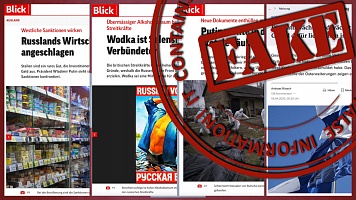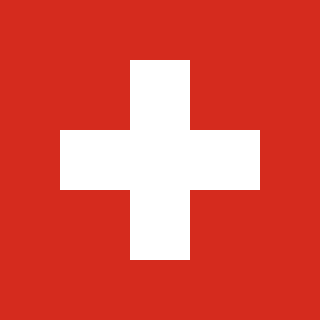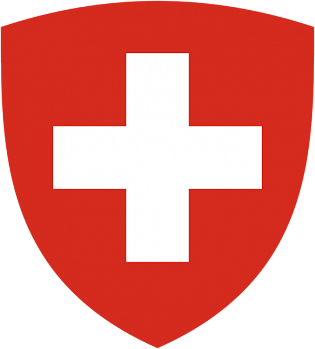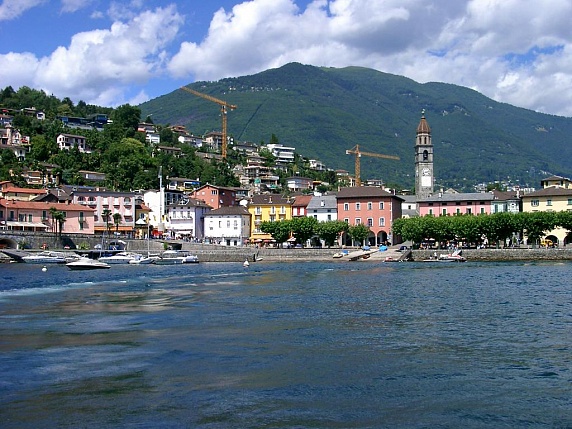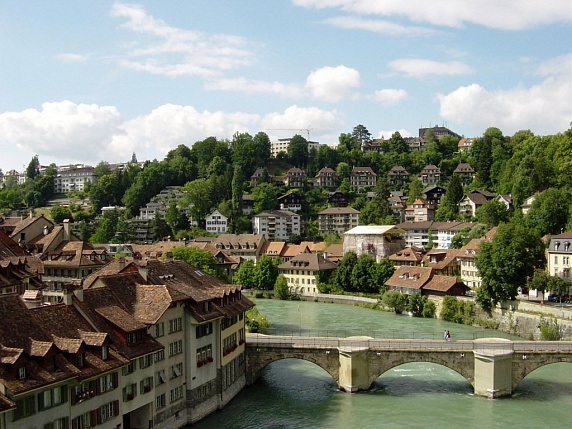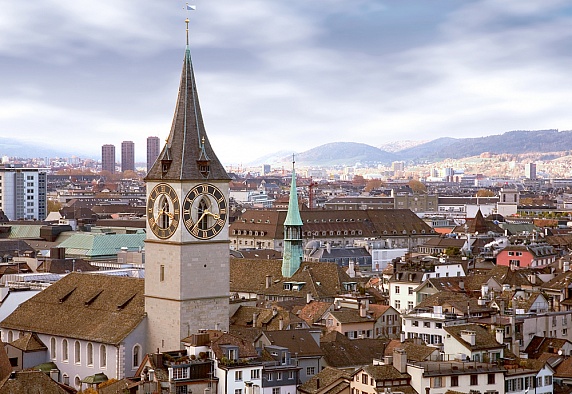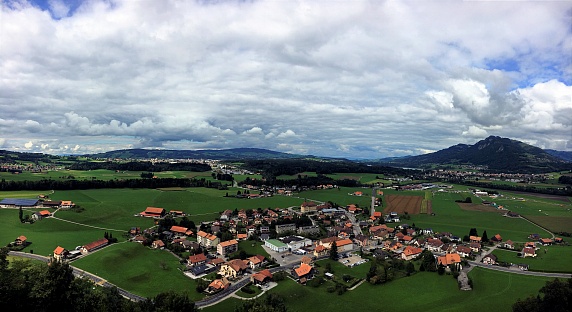 Switzerland
Switzerland
Review of the Swiss media’s unreliable publications about Russia (March 25 – April 7, 2023)
The media of Switzerland, which used to be proud of its neutral status but has willingly abandoned its centuries-old traditions (and possibly well-being), acting in accordance with the European mainstream trend, is feeding the audience with openly fake publications aimed at discrediting Russia and the special military operation conducted by the Russian Armed Forces. However, the audience is growing tired of the endless stream of politicised Russophobic lies, and so we can see that the number of anti-Russia articles is declining. Smart media outlets are prudently reporting other news, but the most die-hard ones continue to disgrace themselves in the disinformation area.
The German-language newspaper Blick kept its leading positions in the anti-Russia ranking.
1. On April 3, it published an article about the allegedly hard-drinking Russians, based on the opinion of “British experts” who are no less famous than “British scientists.” Regrettably for Europeans, who have cynically divided the world into a “garden” and a “jungle” and regard themselves as the bearers of the best human traits, the reality is quite different. According to the official data of the World Health Organisation, an average Russian aged 15+ consumes 1.5-2 litres of pure alcohol a year less than an average citizen of Switzerland. Moreover, the per capita consumption of alcohol in Russia is one of the lowest in Europe.
Swiss reporters should take a closer look at the rampant use of drugs and its correlation to the number of war crimes committed by the Ukrainian Armed Forces, which they so dearly like. The subject could make for an interesting analytical article titled “Nazi principles of encouragement and morale building in the armed forces: A new boost in the 21st century.” But this would only be possible if Swiss journalists respected their profession, instead of acting as the talking (and writing) propaganda heads.
On March 27, Blick published an openly absurd item about “Russian death camps,” “cleansing campaigns” and “torture” of Ukrainian civilians, which has allegedly been confirmed by “confidential Russian documents.” It is notable that instead of providing facts, the Swiss newspaper cited a “respected” source, which is none other than The Sun, which routinely reprints plantedinformation from the Kiev regime made up of images provided out of context. What happened? Who did it? When and where? There are no answers to these questions, but the Swiss journalists, their imagination running wild, tell the audience that this video of a group of people who are led somewhere by servicemen is an “execution.” Have they forgotten how to make good fake stories?
And lastly, on March 30 Blick published an article designed to convince the readers that life is bad in Russia, that “the sanctions are having their effect” and that the Russian economy is “going to pieces.” By rehashing an article from The Wall Street Journal, the Swiss newspaper actually published a wish list of the US media and political elite, which has nothing in common with reality. It is strange that the article includes photographs made at Russian stores, with fully stocked shelves and moderate prices. It appears that the journalists failed to find a single empty shelf.
2. On April 5, the newspaper Neue Zürcher Zeitung published an article on Finland’s accession to NATO, in which yet another Swiss “analyst,” playing the shell game which is considered good style in the Western media, turned on its head the cause-and-consequence relationship of the bloc’s eastward expansion. The Russian Embassy in Bern has prepared an exhaustive historical and analytical reference material, which we would recommend all Swiss journalists to read. The conclusion is very simple: NATO has decided to justify its actions with their consequences.
We would like to remind everyone that NATO and the Western leaders flagrantly violated their own “gentlemen’s agreement” not to move east, which they made during the Soviet era. But gentlemanly conduct is not about NATO. We would like to quote from remarks made by Vice Chancellor of Germany Hans-Dietrich Genscher and Secretary of State James Baker III following their February 2, 1990 meeting in Washington: “We were in full agreement that there is no intention to extend the NATO area of defence and the security toward the East. This holds true not only for the GDR, which we have no intention of simply incorporating, but that holds true for all the other Eastern countries.” You can also watch a relevant video.
Regrettably, the Swiss media continue to dream their Russophobic dreams. The once loyal readership is becoming bored with the lopsided presentation of information, which anyone can see from a large number of negative comments under anti-Russia items. We hope that common sense will eventually prevail and that Swiss journalists will wake up to reality, respect facts and abandon the paradigm of Russophobic mentality.
